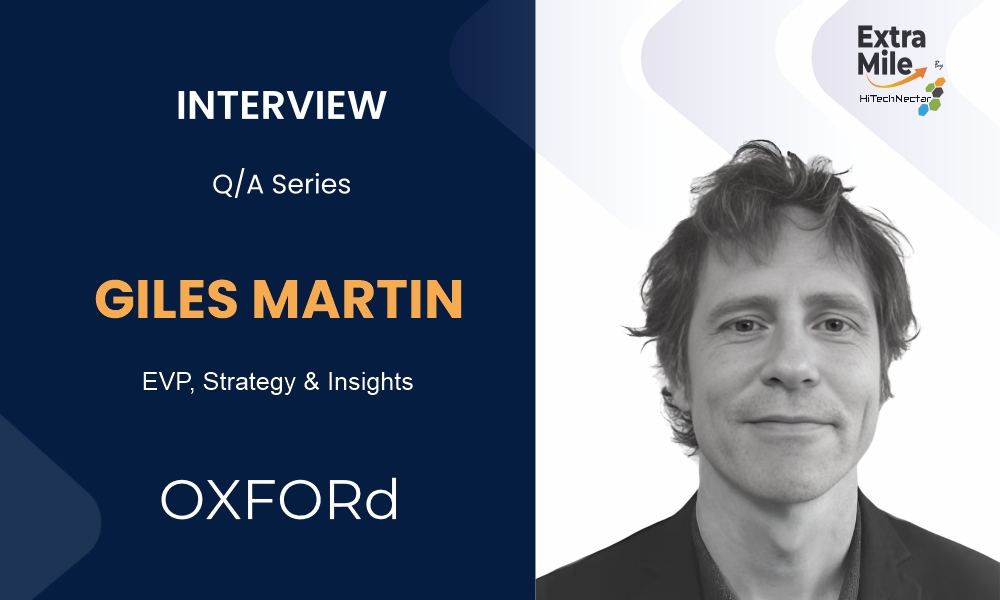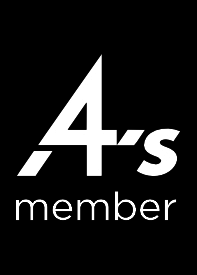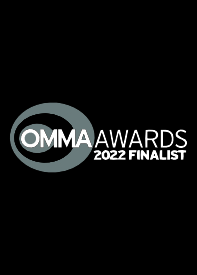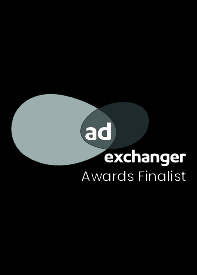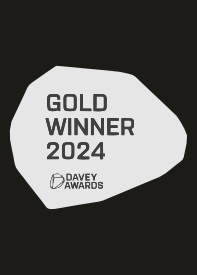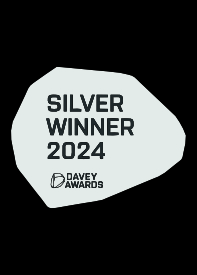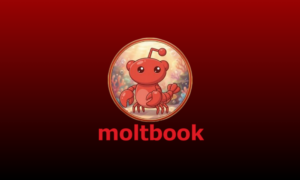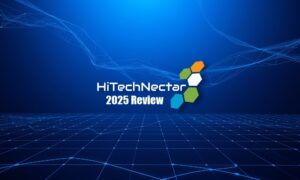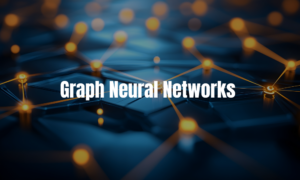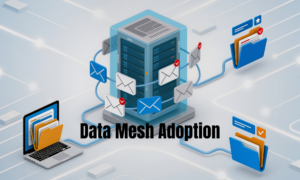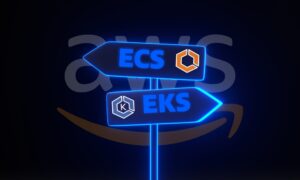Discover the latest innovations, tech practices, marketing trends, and more in our exclusive interview series, ExtraMile by HiTechNectar. In today’s session, Giles Martin, the EVP of Strategy and Insights of Oxford Road, joined us to share unmatched knowledge on emerging video advertising tactics.
Oxford Road is the largest podcast agency that pioneers creator-based video advertising. The firm establishes purposeful interaction and marketing tactics to restore trust within communities. Furthermore, Oxford Road assists global brands to unlock the competency of podcasts alongside audio and video streaming while staying competitive in the industry.
With thorough expertise and analytical thinking, Giles has led Oxford Road to become an innovative and successful organization. His contribution to the company’s data strategy, marketing science, consumer research, and growth planning has been remarkable.
Let us explore the key milestones of Giles’ career, the impact of podcasts in today’s business sector, the role of AI in advancing podcast strategy, Oxford Road’s unique approach, and more.
Welcome, Giles; it’s nice to have you with us today!
Q1. With a decade of experience in strategy, analytics, and leadership, could you share a few key milestones that have led you to where you are today?
Giles Martin. For me personally, the most influential milestones have been about learning. Today’s world demands we learn at a growing speed just to stand still. There’s such a depth, breadth and speed of information that didn’t exist 20 or even 10 years ago. And technology is consistently changing how we work and what we can do – defining how new generations think and operate. Keeping up with it all, and being effective, requires continuous learning and growth.
I believe a trusted, credible marketing executive and mentor needs knowledge of business, technology, computer science, math, communication, analytics, research, psychology, martech, and more. Only with this knowledge can we earn the confidence of our teams and clients, and grow our expertise in dealing with people – which ultimately is what it always comes down to.
So, the key milestones for me are about knowledge and learning. Some learning highlights for me include: taking Andrew Ng’s original Coursera course in machine learning; digesting and evangelizing How Brands Grow and Binet and Field’s Marketing in the Era of Accountability; learning about neuro-linguistic programming and the influence of the subconscious on every day decisions and marketing strategy; starting my own consultancy and learning first-hand the challenges of building a client-base; and then starting with Oxford Road in podcasting, building a network and knowledge-base from the ground up.
Q2. How would you define marketing science? How do you apply that in practice at Oxford Road?
Giles Martin. I see it as having 3 different aspects. First, how we apply relevant findings from science-at-large to marketing. The most important of these have been in neuroscience, behavioral economics and psychology. We’ve learned from them that human beings aren’t rational, despite our protests to the contrary, and they’ve revolutionized our ideas about how to influence behavior. Second, ‘Pure’ Marketing Science, led by Byron Sharp and his team the Ehrenberg Institute. These (and other) efforts have also revolutionized our ideas about marketing, removing a lot of baseless but widely-accepted ideas and replacing them with empirical theories. Lastly, the data-science aspect, which involves quantifying the impact of marketing, understanding where and how it is driving sales and profit. Data-science can be a double-edged sword. As one of my favorite quotes says: ‘all models are wrong, but some models are useful’. Used wisely it is a powerful tool for smart brands.
At Oxford Road, we have built creative frameworks built on principles of influence, subconscious motivation, and other behavioral drivers to get the best possible response from our ads (via our proprietary AudiolyticsTM framework.) We also advise clients intensively on how to best approach their attribution efforts, so they don’t waste time generating meaningless data. Finally, where clients are open, we will guide them passionately towards best practices in marketing, which comes down to balancing long and short-term outcomes.
Q3. From leading strategy at Oxford Road to founding 3frequency, how has your approach to client communication and effectiveness evolved?
Giles Martin. As George Bernard Shaw said, “The greatest problem with communication is the illusion it’s been accomplished.” The most important skill in communication is listening. It’s the most undervalued skill in business and in life. I’ve done extensive training in communication, but if you can listen well, you’re already at least 80% of the way there with regard to managing client (and internal) relationships. If people feel heard, they are more content in the relationship, more collaborative, and more open. Don’t underestimate it!
Tied in with marketing science, learning to pay closer attention and researching the right things can help you identify what the hidden motivators are for clients and colleagues. This can be extremely valuable in effective communication.
Q4. Does the term “podcast” still stand on the top in the age of so much video content? What are your thoughts on this?
Giles Martin. The terms still stands. We recently published a white paper called “What is a Podcast?”, based on extensive industry and consumer research, to help the industry manage these profound changes in the podcast ecosystem. Our conclusion is: if it works with your eyes closed, it’s a podcast – but it can have a video component.
The challenge for marketers is measurement. Typically podcasts can be measured using attribution pixels, but on YouTube – now supposedly the preferred podcast platform almost for ⅓ of listeners – they cannot. This means investment runs the risk of being held up. As the largest buyer in the podcast marketplace, we are working on proposals for the entire industry, including YouTube and Spotify, to streamline and standardize measurement and attribution.
Q5. As AI is taking center stage in every field, how do you see it transforming podcast strategy and audience engagement over the coming years?
Giles Martin. There are many aspects to it. Creators now have the ability to edit, ideate, and even create entire shows in a few seconds – and not just in their own market. AI makes the flow of podcast content across global markets increasingly realistic, and is a game-changer for global growth.
For advertisers, the market is already changing in almost all aspects: programmatic, analytics, brand safety, and research tools already have LLM components and AI is rapidly changing these tools’ capabilities and possibilities. AI is also democratizing programming and innovation in dramatic ways. We are seeing our internal teams – without coding experience – quickly building and automating tools and capabilities that previously had extensive, manual workflows. It’s essential not to count on these tools blindly, as AI is still prone to mistakes. But the time-savings and quality of the outputs are typically outstanding.
AI is helping better understand content, context, intent and various other aspects that are key to better understanding podcast consumption and motivation.
Q6. What is Audiolytics™, and how does it enhance audio ad performance? Could you share how Oxford Road goes with this?
Giles Martin. Audiolytics™ is Oxford Road’s proprietary framework for making audio ads that perform, not just sound good.
Built on 9 core components and 71 sub-components, it’s grounded in years of campaign data, direct response best practices, and the latest research in behavioral science. Think of it as a creative accountability system – designed to diagnose what’s working, what’s not, and how to fix it.
When a new client comes in, we start by scoring their existing ads. Most land between 65–75%. We aim for 90%. That delta shows us exactly where to improve.
Every script we develop – whether it’s an optimization or built from scratch – is run through Audiolytics™ before it ever goes live. It has to grab attention, deliver a compelling value prop, create urgency, and make the path to action crystal clear. If it doesn’t hit the mark, it doesn’t ship.
The result? Ads optimized with Audiolytics™ routinely deliver 20–30% better performance – and sometimes even more.
Q7. As the largest podcast and creator-based video agency, how does Oxford Road stand out in the global market?
Giles Martin. For many years, it’s simply been about being a podcast specialist. Many brands have looked at podcasting from afar and seen a quality advertising environment, high attention, low clutter, high-quality audience, and wanted to get into the space. But to do it properly is hard. Measurement is hard. Planning across millions of shows is hard. Working with talent is hard. Keeping talent accountable is hard. The experience and expertise of having brought hundreds of brands to market in podcasts has been enough to help us stand out.
As podcasting becomes more global, so have we. We have campaigns running in over a dozen countries outside the US, including in Europe, South America, and Asia. We’ve got relationships and local talent in many markets and are able to not only create locally-relevant media plans, but also creative assets that are locally sourced or not only translated but culturally and idiomatically adapted to truly fit the spirit of the local market.
We stand out by offering US brands global solutions and global brands an entry point into the US market. However, we never lose sight of the fact that, while we can provide a seamless global service, we always treat each campaign with local care and attention.
Q8. What made Oxford Road kickstart the Media Roundtable Initiative, and how has it affected the industry and your agency?
Giles Martin. Oxford Road founded the Media Roundtable in response to growing concerns over civic polarization, misinformation, and brand risk in media buying. As an agency with deep ties to influencer and personality-driven media, we saw firsthand how advertising dollars could unintentionally support harmful or divisive content – or support good quality content that was unfairly categorized as harmful.
The initiative was born to foster unity, openness, and civil discourse from content creators, advertisers, and networks; help brands maximize advertising opportunities in podcasting; and to create industry standards in podcasting for brand safety and responsibility. Several brand safety tools in podcasting have come out of this initiative, and we have collaborated with tech partners on many of them. We have developed standards and practices for clients and publishers to handle social controversy. While others spoke about brand safety reactively, Oxford Road took a proactive leadership stance, framing the conversation around values-driven advertising. This helped build stronger partnerships with clients who cared not just about performance, but about impact.
Q9. Can you share an example where predictive planning had a positive impact on a clients’ growth path?
Giles Martin. For us, predictive planning often involves looking at different scenarios around different levels of advertising investment in audio, influencer, and video environments, using historical data to make forecasts.
One of our major clients came to us because a competitor had dominated the podcasting and influencer space for many years, generating a perception of leadership and significant share of mind among the podcast audience, even though they were the smaller brand. They had also locked our client out of many opportunities in podcasting, having secured category-exclusive deals.
We looked at different investment scenarios and found ways to identify precious white space in terms of podcasting and influencer inventory. In addition, we identified operational and executional efficiencies to best leverage the enhanced investments and provide an integrated growth strategy. This allowed us to make some estimates on future growth into the podcasting space and future performance (ROI) from the channel.
A few years later and our client is the largest podcast spender in the category by around 17%, according to data from Magellan.ai. In quarterly reviews, podcasting often is reported as their top-performing channel for new customer acquisitions.
Explore Our Other Insightful Interviews:


